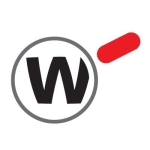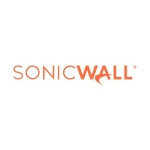What is our primary use case?
We use it for the actual firewall and also site-to-site VPN.
Our company is always growing. Every day's a new day and there is always something new to learn. We are a mature organization, but we can never sit still. We have two company locations and we use Cisco Firepower as our main firewall at both locations.
Overall, for security, we use about seven tools.
Within our company, there are just two people that maintain this solution. Myself and the IT manager. I'm the network administrator.
How has it helped my organization?
We were the subject of a ransomware attack a little over a year ago. Due to our console, we're able to easily see where the threat came from, all the while being able to shut down the network but maintain our network on the other side — or the other side of the site-to-site VPN. Then we could fix what we needed to be fixed here, and then subsequently correct the issues on the other side.
What is most valuable?
The manageability through the FMC is superb. I have a single dashboard that I can manage my firewalls from. I can see and manage all of my objects and control all my policies. I can look at all my logs and control my whole network from one dashboard.
What needs improvement?
FirePOWER does a good job when it comes to providing us with visibility into threats, but I would like to see a more proactive stance to it. Maybe more of an IDS approach. I don't know a better way to say it, but more of a heavier proactive approach rather than a reactive one.
For how long have I used the solution?
I have been using Cisco Firepower NGFW Firewall for two years.
What do I think about the stability of the solution?
I have had little to no issues except with the first version that we had. There was a known issue with Cisco in the first version. When I went to do a restore, there was a known issue with something with the Linux kernel. It took us about two weeks to get the restore working. It was a scary moment for us, but we worked through it, and ever since we've had no issues, stability-wise.
How are customer service and technical support?
I have contacted support multiple times and I have no problems with them. I think they do the best with what they have — especially with the pandemic this year. I think they've done everything they can do with what they have. They don't stop. They don't give up until the issue is resolved. They're really good with following-up too, making sure that the issue hasn't come back.
Which solution did I use previously and why did I switch?
We have another product that monitors all traffic. It just sits back and idols in the background — It integrates, but it doesn't if you know what I mean. It's a separate dashboard, but it alerts us. We can control the security — level zero through one hundred. If a threat registers above 54% (we have the limit set at 51) it alerts us. If it's a specific threat, it can shut down services, ports, machines, authentication, and so on and so forth.
We also use AMP, Umbrella, SecureX, and Duo. They're pretty easy to integrate. I wouldn't say beginner level, but if you have a working knowledge of networks and security, you can easily get them integrated. Also, if you need help, Cisco's always there to assist.
We use Firepower Management Center — it's a wonderful tool. It has an awesome all-in-one pane of glass dashboard so you can manage multiple devices from one dashboard. It's also very easy to set up.
We used to use SonicWall. Cisco was purchased right before I came on board, but from my knowledge, we had issues with the licensing of SonicWall. We are a Cisco shop. Both my manager and I prefer Cisco over other vendors. We have more experience with Cisco and their customer support and the products themselves are just better in our experience.
How was the initial setup?
The deployment was with all new networks, so the architecture was with a peer. We first sat down and discussed or laid out our network and what it would look like through IP schemes and everything else in that sense. We then figured out how many users we would have and decide what size of hardware we would need. We decided on what type of VPN connection and what certificates we would need. After that, once we were able to secure those tunnels and get communication going between our two locations, we then started tightening down our two networks as we have multiple networks within each location.
We had to decide what all needed to communicate with one another. Not every network needed to touch the outside world.
What about the implementation team?
From start to finish, including production rollout for other areas, deployment took roughly one month. We did it all in-house.
Some maintenance is required involving security patches. Cisco is really good at deploying those or not deploying those, but putting those out and having release notes and upgrade paths and just the information behind all of their patches. Cisco does a really good job with that.
What's my experience with pricing, setup cost, and licensing?
With any solution from anybody, I always think that licensing is a little high — but it's comparable to other companies. It definitely competes with the other vendors in the market.
What other advice do I have?
If configured, Firepower provides us with application visibility and control.
The ability to futureproof our security strategy is definitely there. There are a lot of functions that we don't yet use. When I say we don't use a function, I mean that the functionality or the ability is not turned on yet simply because we have not gotten around to it. The ability is there, the capability is there. That also goes into the reasoning behind why we chose it.
Do your research, know your skillset, be comfortable with your skillset, and don't be afraid to challenge yourself.
Overall, on a scale from one to ten, I would give this solution a rating of eight.
Disclosure: PeerSpot contacted the reviewer to collect the review and to validate authenticity. The reviewer was referred by the vendor, but the review is not subject to editing or approval by the vendor.












